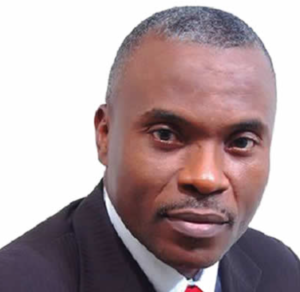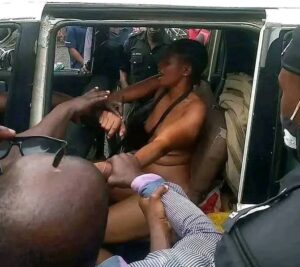What You Need To Know About Delta Igbo Origins And Border Communities
What You Need To Know About Delta Igbo Origins And Border Communities

The question of the origins and ethnic identity of the Igbo-speaking people in Delta State has sparked ongoing debate. Recently, this discussion has resurfaced. Some individuals in Delta (and Edo) who speak Igbo claim Igbo identity but acknowledge that their communities have been influenced by migrants from neighboring states like Edo, Kogi, and Ondo. Conversely, other Igbo-speaking residents of Delta and Edo argue against an Igbo identity, suggesting their ancestry is linked to Benin in Edo State or Igala in Kogi State.
Interestingly, many Nigerians not of Igbo descent tend to side with those who deny Igbo identity for the Delta and Edo communities, often advocating for the right of individuals to self-identify. Yet, when discussing Chukwuma Kaduna Nzeogwu, the prominent figure from Delta who led the 1966 coup, the same individuals insist on his Igbo identity. In contrast, many from the South-East Igbo region support the view that Igbo-speaking populations in Delta, Rivers, and Edo (including Igbanke) are indeed Igbo, despite political boundaries and historical events like the Nigerian Civil War.
This phenomenon of mixed ethnicities is not unique to these regions. For instance, Strasbourg, often mistakenly thought to be German due to its name, is actually in France. Similarly, Ondo State showcases a blend of Yoruba and Ijaw influences. Prominent figures like Omoyele Sowore, an Ijaw from Ondo, and Kingsley Kuku, a former advisor on Niger Delta Affairs, illustrate this ethnic mixture.
In other regions, such as Anambra and Kogi, there are also notable cross-border influences. For example, in 2018, Anambra’s Governor Willie Obiano appointed Bonaventure Enemali, an Igala from Anambra’s Nzam, as commissioner. Similarly, indigenous Igbo populations are present across Kogi’s borders. Kwara and Kogi also feature a blend of Yoruba and Okun-Yoruba people.
Enugu State shares boundaries with Kogi and Benue, while Ebonyi borders Benue and Cross River, resulting in notable cultural exchanges. In Abia State, towns like Abiriba and Arochukwu show similarities with neighboring Akwa Ibom and Cross River in terms of names and traditions.
The ongoing debate about the Igbo identity of Delta and Rivers communities seems more contentious compared to other border regions, where ethnic blends are generally accepted. The fact that Igbo language, customs, and practices are deeply rooted in Delta and Edo, despite their border location, suggests that these areas have had significant Igbo presence historically.
The notion that languages and traditions can be adopted without significant influence from existing populations is not supported by historical patterns. The preservation of Igbo practices, such as market days and leadership systems, among these border communities indicates that these areas were predominantly Igbo before the arrival of external influences.
Historical evidence suggests that figures like Eze Chime of Delta and Akalaka of Rivers, who are believed to have migrated from other regions, would have maintained their identities only if they settled among Igbo speakers. This is consistent with global patterns where dominant cultures or languages typically prevail unless there is a significant conquest or cultural shift.
In conclusion, while there is evidence of migration and cultural influence at the borders of Igboland, the strong preservation of Igbo language and customs in Delta and Edo supports their classification as Igbo. This does not negate the right of individuals to choose their preferred identity, especially in the context of historical and political pressures that have influenced many Igbo people living outside the traditional Igbo heartland.
TRENDING SONGS
 Wedding Called Off: How Lady Cancels Wedding After Finding Out Finance’s Affairs With Her Bestie
Wedding Called Off: How Lady Cancels Wedding After Finding Out Finance’s Affairs With Her Bestie
 Heartbreak in Ikeja: Lady Weeps After Fufu Found in New Phone Package
Heartbreak in Ikeja: Lady Weeps After Fufu Found in New Phone Package
 Twist of Fate: Man Who Questioned Phyna’s ₦1Billion Demand Mourns Brother in Dangote Truck Crash
Twist of Fate: Man Who Questioned Phyna’s ₦1Billion Demand Mourns Brother in Dangote Truck Crash
 Tragedy in Enugu: Dangote Truck Claims Lives of Family of Five
Tragedy in Enugu: Dangote Truck Claims Lives of Family of Five
 Bangkok Crackdown: Nigerian-Thai Couple in Police Net Over Drug Trafficking
Bangkok Crackdown: Nigerian-Thai Couple in Police Net Over Drug Trafficking
 Family Rift: Reno Omokri’s Ex-Wife Says He Deserted Their Special Needs Son
Family Rift: Reno Omokri’s Ex-Wife Says He Deserted Their Special Needs Son
 The Man Who Sent Money for Two Decades, Only to Return to an Empty Shell
The Man Who Sent Money for Two Decades, Only to Return to an Empty Shell
 See how a young lady was beaten in a village and naked for stealing a goat
See how a young lady was beaten in a village and naked for stealing a goat
 See How Man That Plans to Divorce His Wife, Gets Shocked When She Leaves Him First With Their 5 Kids
See How Man That Plans to Divorce His Wife, Gets Shocked When She Leaves Him First With Their 5 Kids
 Tragic Land Dispute: Man Kills Father in Imo, Pastor Arrested for Rape
Tragic Land Dispute: Man Kills Father in Imo, Pastor Arrested for Rape
Share this post with your friends on ![]()













